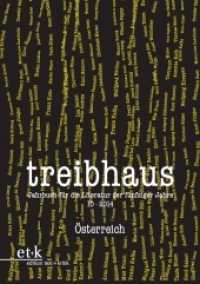- ホーム
- > 洋書
- > 英文書
- > Computer / General
Full Description
The book is divided into four chapters, the first of which introduces readers to lossless coding, provides an intrinsic lower bound on the codeword length in terms of Shannon's entropy, and presents some coding methods that can achieve this lower bound, provided the source distribution is known.







